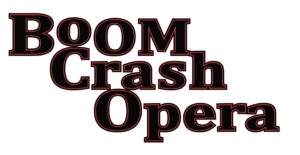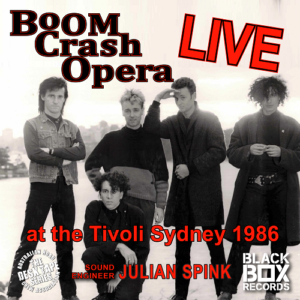CREW
Julian Spink – sound
Alex Saad – lighting
Mick Davis – Rigger
Peter Farnan – guitar, backing vocals
Peter ‘Maz’ Maslen – drums,
Greg ‘Spock’ O’Connor – keyboards
Richard Pleasance – bass, backing vocals
Dale Ryder – lead vocals
The Series was created by ARCA to raise badly-needed finances for Support Act’s Roadies Fund to provide financial, health, counselling and well-being services for roadies and crew in crisis.
The live tapes are recorded off the mixing desk by a crew member – in this case Julian Spink, their long-time sound engineer. The tapes are released on ARCA’s Black Box Records through MGM Distribution and on all major streaming services.
Close to 50 artists have now thrown their hats in the ring to help support those in need.
The ARCA Desk Tape Series is acknowledged in media for its historical importance in capturing great live music from great live acts.
Huge thanx to Pete Farnan, Tony Mott, Patrick Jones and Ross Hipwell for the photos, Nprint for the artwork, Phil Dracoulis for the mastering, and especially Boom Crash Opera for their support of roadies and crew.



1 Face That I’m Living In
2 Leave
3 Bombshell
4 Her Charity
5 Axe To Grind
6 Caught Between Two Towns
7 Too Hot To Think
8 Gap That Opened
9 Rocks Are In My Head
10 Floppy Man Stand Up
11 Great Wall
12 Spirit Of Progress
13 Hold Me Down
14 Hands Up In The Air
IN THE AIR TONIGHT
“Hands Up In The Air”, with its reference to drowning, gives an insight to why Boom Crash Opera got together in the first place to play their first gig in 1985.
“It was all about ambition and getting out of Melbourne,” guitarist and songwriter Pete Farnan explains.
“I was terrified I wouldn’t be able to get a career in music. I was in my mid-20s, I had this punk band Serious Young Insects which had a record deal and fizzled out.
“I was panicking, My God will anything ever happen? Another of our songs ‘City Flat’ was about the same thing.”
He and Richard Pleasance studied music at Melbourne State College.
Pleasance had been classically trained since nine. He’d been in inner city 1980s bands as Government Drums and Bang but these never lasted more than a few years.
When he and Farnan started writing songs together, the idea was to build a long career.
DOING COVERS
The first additions were drummer Peter “Maz” Maslen and singer Dale Ryder.
Maslen, from Cairns in Far North Queensland, had from a young age, proven to be a skinsman who surrounded himself with a massive drum kit but played with intelligence and space.
At 19 he jammed with David Bowie in a Brisbane club.
After moving to Melbourne, he’d occasionally sat in with reggae and odd-timing jazz (con)fusion bands, the latter which included Pleasance.
Richard took him aside one night, “Do you really like this music? I’m putting together a band and we wanna get on Countdown, basically.”
Farnan recalls: “Maz was in a cover band making serious money. He could play really well, world class, we wondered why he’d want to schlep around with us, a bunch of inner city time wasters with big ideas and no prospects.
“He knew the way out was to find musicians who made opportunities.”
Also playing in the cover band was Ryder. When on a trip to Canberra to play a gig, Maslen played him songs Farnan and Pleasance had written. He was impressed by the diversity.
Ryder, son of Indian immigrants, had been playing around northern Melbourne clubs, rehearsing in the family garage.
He instinctively knew Boom Crash Opera would be the way out of cover bands.
Ryder: “When you have great songs, it just makes that whole live experience a great one. You obviously have to work hard but having the songs – hits and misses! –makes it easier.”
Getting a keyboard player proved a problem. Their early try-outs were efficient and had the chops but didn’t quite fit in with the spirit of BCO.
“We needed a special sauce to add to the mix. Greg O’Connor walked in, he had really fantastic clothes, he was a graphic artist (and landscape design artist) and very quiet.
“When we told Spock, his nickname, what key the song was in, he tried to hide the fact that he didn’t know what notes were on the keyboard.
“We looked at each other and went, “We found our guy!”


INSPIRATION
Farnan and Pleasance were inspired by bands as The Models, Midnight Oil, INXS and Hunters & Collectors. They had angular guitars, singalong chants and stop-start drums.
They had struck a chord with the way their songs were soundtracks to their fans’ lives that turned them into live attractions and best sellers.
“We also loved how Hunters & Collectors arrived fully formed as a funk orchestra and had full houses from the start. We wanted to be like that.”
This was exactly how Boom Crash Opera (they considered calling themselves Boy Meets Girl for a week) launched.
After a few warm-ups under another name, their first show was at the Tiger Lounge in Richmond, Melbourne.

It was packed out with 400 punters, mostly friends, and went down a storm.
“That created its own vibe so the next show we did a bigger room, and we filled that. We then went to Sydney and did the same thing.”
Recognition from the music industry was rapid. Music journalists, A&R execs and booking agents started drooling.
Warner Music and Mushroom Music signed them up. So did Dirty Pool, powerhouse agency with Cold Chisel, The Angels and Icehouse.
The show at the Tivoli, on George Street in Sydney, to 1,200 people was opening for Icehouse and packed out.
SPINK MIXER
Among that first show at the Tiger Lounge was Julian Spink.
He’d been with Peter Farnan in Serious Young Insects, as sound engineer and for a time, playing in a short-lived five-piece version.
Spink had studied classical until he was 23, attending the College of the Arts for a year before switching to Melbourne State College where Farnan was.
“I bought a Rhodes and a n ARP Omni and started playing in cabaret bands, where you read off a chart and played in leagues and footie clubs.
He became the mixer for Serious Young Insects, helping one of them build a PA system.
When the Insects split, Spink moved off to audio work. After meeting up with Farnan at the Tiger Lounge, the guitarist asked him to mix for BCO.
They were working six gigs a week and kept up an exhaustive schedule.
“They were really hot from the start, the guys to go and see. They were playing a lot, including supports for the Oils and Chisel.
“Serious Young Insects were a three piece. With less people in the band, there’s more information coming off the stage.
“I had to learn with BCO’s five piece. At one point they had two different bass rigs because they switched who’d play bass, which made it more complicated at least for a support act.”
ON A HIGH
By the time of the Tivoli show, BCO were on a high, with the chart success of “Great Wall” enlarging their crowd.

Spink accompanied BCO to England when they went to record their first album with the late producer Alex Sadkin.
“With some of the advance, we bought some studio outboard gear we were using. So when we did our own gigs we had reasonable gear … sometimes a lot better than what the main acts would have.”
Within a few years, Spink went on to work for Divinyls, Crowded House, Icehouse, Little River Band and The Seekers.
In time he was much in demand in musical theatre circles.
In 1993 he joined System Sound as Head of Sound on the musicals Les Miserables, Sunset Boulevard, West Side Story, the Millennium New Year’s Eve Spectacular, the 2000 Olympics Arts Festival and more recently, Chicago, And Juliet and multi-act spectacle Metaverse of Magic.
LIVE TAPE
The bulk of Live Tivoli 20 May 1986 comes from the first self-titled BCO album.

The strength of their songwriting is obvious with the strong melodies of “Great Wall”, “Her Charity” and “Hands Up In The Air”, the brutal attack of “Axe To Grind” (“have you seen Spinal Tap?” Dale chuckles), “Hold Me Down”, “Bombshell” and “Hold Me Down”.
“Gap That Opened” and “Floppy Man Stand Up” show off their funky side, while the chanting & singalong element of “Spirit Of Progress”, the train between Sydney and Melbourne.
Acclaims Spink: “What was so great about Boom Crash Opera was the combination of all their playing skills.
“You can hear from the tape how Dale’s a fantastic singer and unique in his style. He has a real magnetism and he learned from others.
“Maz’s beat is so distinctive, the way he establishes a beat and a skip on his snare.
“Like their songwriting, Richard and Pete’s guitar styles come from different places, one quirky and the other a crossover into the harder edge, and Spock adds something really esoteric to everything.”
By time of this Tivoli gig, Boom Crash Opera were already on a high. Rolling Stone Australia, choosing 12 acts tipped to be the Next Big Thing, commented, “One name that stands out … a Melbourne band that has every A-and-R man and his dog salivating.”
It was still early days. Farnan recalls that on the Icehouse tour, the headliners were travelling in luxury. “We were schlepping, sleeping five to a room. You’d check into a room in Bondi and five minutes later you checked out because of cockroaches.”
“Great Wall” was chosen as the debut single. It was written by Ryder, Pleasance and O’Connor. The title came from a suggestion from Farnan that the Hume Weir had cracks, which later became a symbol of a dam either bottling up fear and prejudice, or shoring up relationships.
“Great Wall” shot to #5 on the charts, and gave Boom Crash Opera those Countdown and mainstream radio appearances they wanted from the very beginning.
COUNTDOWN
Farnan: “The first timer we went on Countdown, I was teaching guitar in a Catholic girls convent. Judging from the girls’ reaction the next morning, I knew I had to quit.”
At the Countdown Music and Video Awards of 1986, held in July 1987, “Great Wall” won Best Debut Single.
For Ryder, it was a vindication. Coming from a hard working migrant family looking for the better life, his parents had urged him to “get a job”.
When “Great Wall” went on radio, they admitted that success came in different definitions.
The first album, out in September 1987 and recorded in England, went gold and yielded more hit singles like “Hands up in the Air”, “City Flat” and “Her Charity”.
Around the corner was the second album These Here Are Crazy Times which utterly stormed the charts and went double platinum following classics as “Onion Skin” (which went to #8 in America), “Get Out Of The House” and “Dancing In The Storm”, the latter still their most streamed song.




